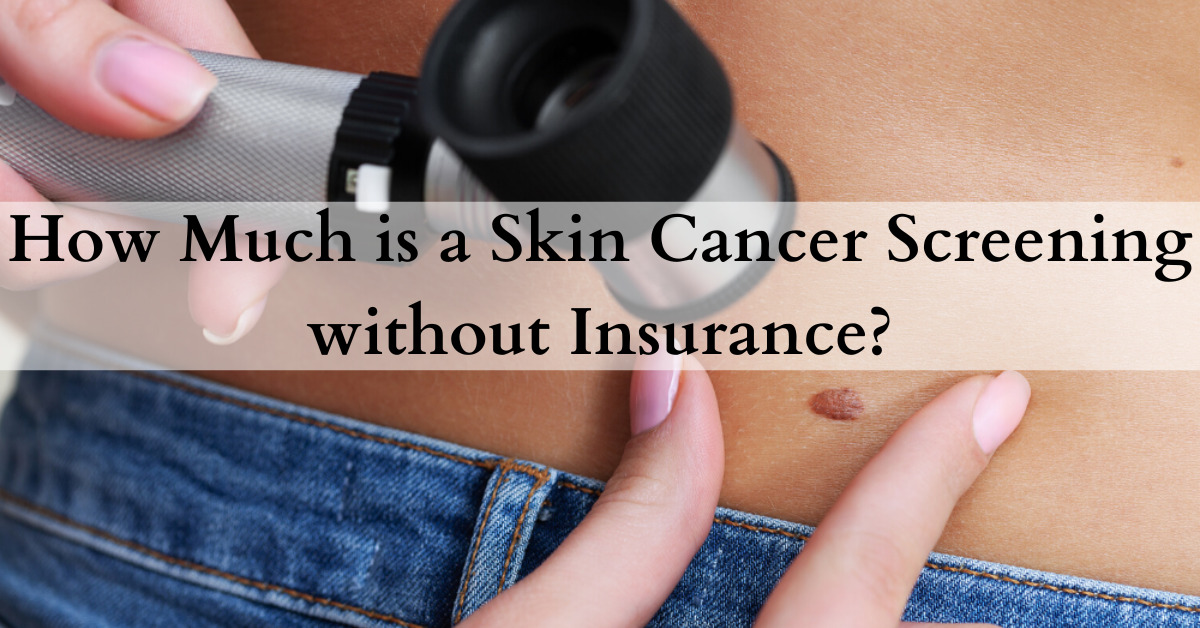
What is Cosmetic Dermatology?
October 19, 2023
Skin Tag Removal Cost in Phoenix, Arizona
January 23, 2024Skin cancer is the most common form of cancer in the United States, with over 5 million cases diagnosed each year. Early detection is key to successful treatment, but many individuals hesitate to get screened due to the fear of high costs, particularly if they lack health insurance. In this article, we’ll explore the various aspects of skin cancer screenings, their importance, and the costs associated with them when insurance is not in the picture.
Understanding the Importance of Skin Cancer Screening
Skin cancer screenings are essential because they can identify skin cancer in its early stages when it is most treatable. This means a higher chance of successful treatment and lower mortality rates. Skin cancer screenings are not just for those with a family history of the disease but for everyone, as skin cancer can affect anyone, regardless of age or ethnicity.
The Costs of Skin Cancer Screening
When considering skin cancer screening, it’s crucial to understand the wide range of costs associated with it.
Affordable Options
Some healthcare providers offer affordable skin cancer screenings. These may be available at community health clinics or during special events and health fairs. These screenings are often less expensive and sometimes even free.
Expensive Clinics
On the other end of the spectrum, private dermatology clinics may charge significantly higher fees for skin cancer screenings. These costs can vary based on the clinic’s location, reputation, and the specific services offered.
Skin Cancer Screening Process
The skin cancer screening process usually involves a thorough examination of your skin by a dermatologist. They will check for any suspicious moles or lesions. The dermatologist may also take photographs or perform biopsies if needed. This process is non-invasive and relatively quick.
Why is Skin Cancer Screening Important?
Early Detection
The early detection of skin cancer is crucial for successful treatment. When detected in its early stages, skin cancer is often curable with minimal intervention.
Reducing Treatment Costs
Early detection not only increases the chances of survival but also reduces the overall cost of treatment. Treating advanced skin cancer is more expensive and can involve surgery, radiation, and chemotherapy.
How Much Does a Skin Cancer Screening Cost Without Insurance?
The cost of a skin cancer screening can vary significantly, depending on where and how you get screened.
Dermatologist’s Fees
At a private dermatology clinic, a skin cancer screening may cost anywhere from $50 to $200 or more. The cost can increase if you need a biopsy or follow-up appointments.
Additional Costs
In addition to the dermatologist’s fees, there may be additional costs for laboratory tests or any necessary procedures. These costs can quickly add up.
Affordable Alternatives
If you don’t have insurance and are concerned about the cost of a skin cancer screening, there are some affordable alternatives to consider.
Community Health Clinics
Many community health clinics offer reduced-cost or sliding-scale fees based on your income. These clinics aim to make healthcare services more accessible to individuals without insurance.
Free Screenings and Events
Look for free skin cancer screening events or health fairs in your area. These events are often organized by healthcare organizations, and they offer screenings to the public at no cost.
Online Dermatology Services
Some online dermatology services provide remote skin assessments. While these services are not a replacement for an in-person examination, they can be a cost-effective way to get an initial assessment of any concerning skin changes.
The Importance of Regular Screenings
Regular skin cancer screenings are vital, even if you don’t have insurance. Skin cancer can develop at any time, and early detection remains the best defense against it. Your skin is your body’s largest organ, and taking care of it should be a priority.
The Risk Factors for Skin Cancer
Understanding the risk factors for skin cancer is essential. These factors include excessive sun exposure, family history, fair skin, and a history of severe sunburns. Knowing your risk factors can help you make informed decisions about when to get screened.
How to Perform a Self-Examination
Performing regular self-examinations of your skin can be an additional tool for early detection. Look for any changes in moles, freckles, or any new growths. If you notice anything unusual, consult a dermatologist for a professional assessment.
Conclusion
In conclusion, a skin cancer screening is a vital aspect of healthcare, especially when considering the potentially life-saving benefits. While the cost may be a concern for those without insurance, there are affordable options available. Whether through community clinics, free screenings, or online services, there are ways to access screenings without breaking the bank.
By prioritizing your skin health and taking advantage of these alternatives, you can ensure that you receive regular screenings, increasing the chances of early detection and successful treatment.
FAQs
- What are the early signs of skin cancer? Early signs of skin cancer may include changes in the size, shape, or color of moles, the appearance of new growths, or sores that don’t heal.
- Can I prevent skin cancer without screening? While regular screening is essential, you can reduce your risk of skin cancer by practicing sun safety, such as wearing sunscreen and protective clothing, and avoiding excessive sun exposure.
- Is skin cancer screening painful? Skin cancer screening is typically painless, involving a visual examination by a dermatologist.
- How often should I get a skin cancer screening? It’s recommended to get a skin cancer screening at least once a year, but individuals with higher risk factors may need more frequent screenings.
- What if I can’t afford a skin cancer screening? If you can’t afford a screening, consider visiting community health clinics or attending free screening events. You can also explore online dermatology services for affordable initial assessments.

